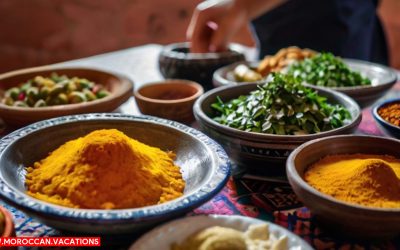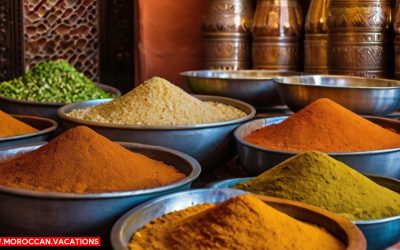Historical Influences on Moroccan Cuisine
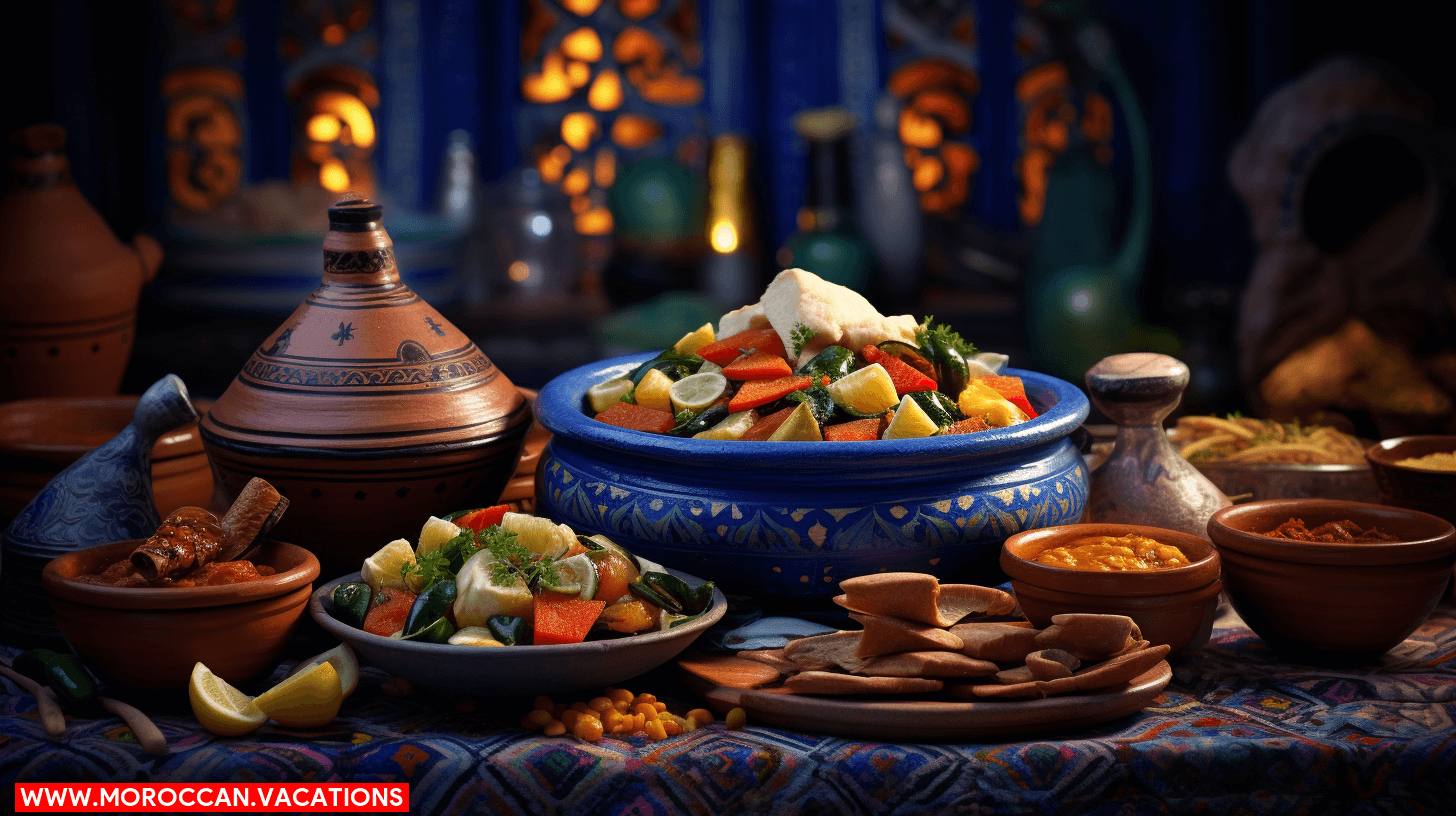

Do you ever stop to savor the rich flavors and vibrant colors of Moroccan cuisine? In this article, we will explore the cultural significance of food in Moroccan society. From the influences of history on their culinary traditions to the symbolism behind ingredients, we will delve into the intricate tapestry of Moroccan food culture. Discover how sharing meals brings communities together and how each dish reflects the identity and values of the Moroccan people. Get ready to embark on a tantalizing journey through the heart of Moroccan gastronomy.
Historical influences have shaped Moroccan cuisine into a rich and diverse culinary tradition. The cultural evolution of Moroccan cuisine can be traced back to the ancient Berber tribes who inhabited the region. These indigenous people relied on local ingredients such as couscous, dates, and olives, which have remained staple components of Moroccan cuisine to this day.
However, Moroccan cuisine has also been greatly influenced by foreign cultures throughout history. From the Arab conquest in the 7th century to the subsequent arrival of the Moors and the Ottoman Empire, Moroccan cuisine has absorbed flavors, techniques, and ingredients from various cultures. The Arab influence introduced spices like cinnamon, cumin, and coriander, which are now synonymous with Moroccan cuisine. The Moors brought with them new crops such as oranges, lemons, and almonds, which have become integral to Moroccan cooking. The Ottoman Empire introduced new cooking techniques and ingredients, such as the use of preserved lemons and the incorporation of dried fruits and nuts into savory dishes.
These foreign influences have not only added depth and complexity to Moroccan cuisine but have also contributed to its cultural identity. The blending of indigenous traditions with these foreign elements has created a unique and vibrant culinary heritage that reflects the country’s history and multiculturalism. Moroccan cuisine is a testament to the freedom of cultural exchange and the ability to embrace and adapt to new influences while still maintaining a strong sense of cultural identity.
Rituals and Traditions in Moroccan Food Culture
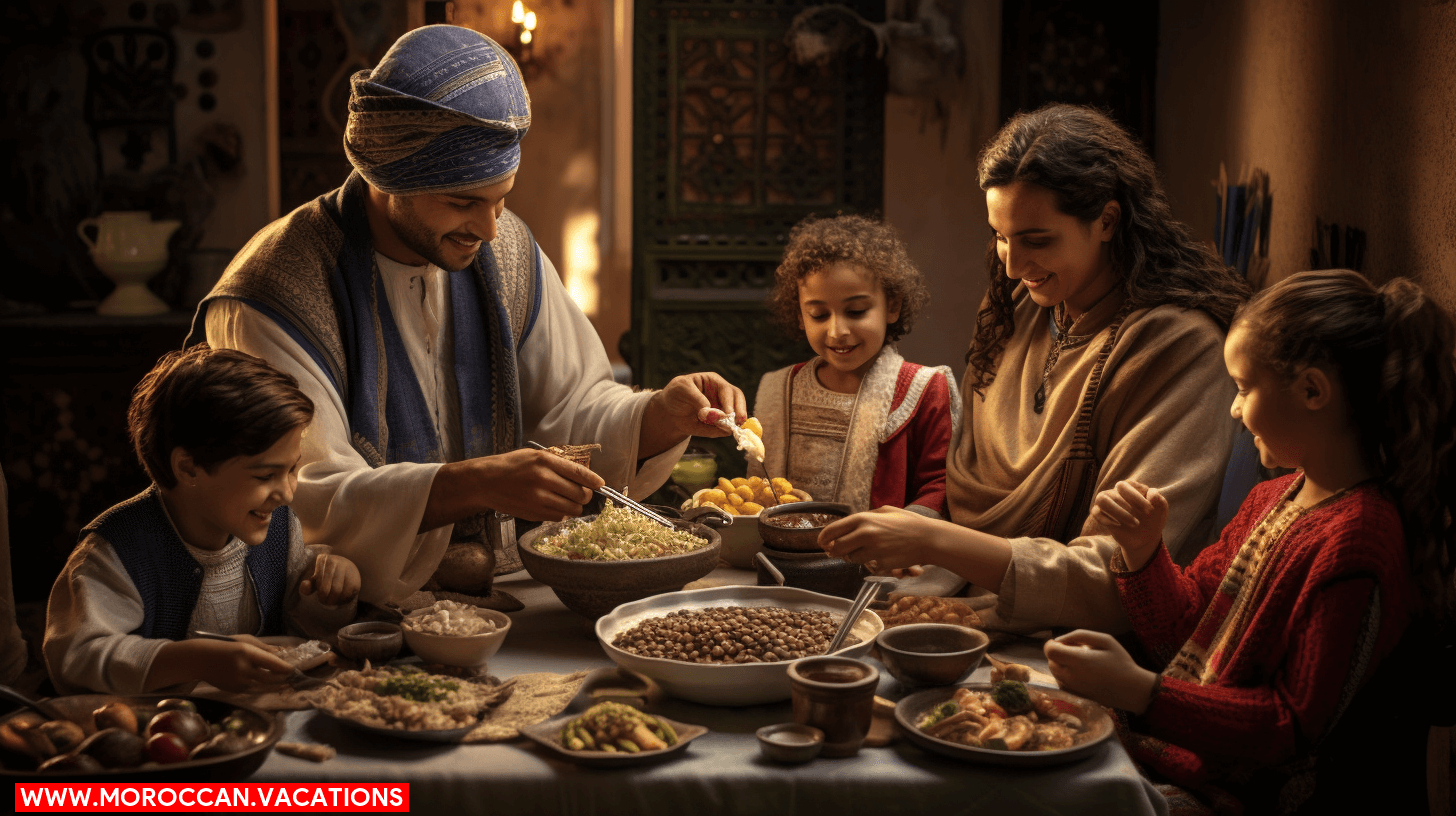

Moroccan food culture is steeped in rich traditions and rituals that play a significant role in the daily lives of its people. The culinary practices and traditional dishes of Morocco are deeply intertwined with the country’s cultural heritage and are often celebrated through various rituals and traditions.
One such ritual is the preparation of traditional Moroccan tea, known as “Atay”. This tea is a symbol of hospitality and is often served to guests as a gesture of welcome. The process of making Atay involves a specific technique of pouring the tea from a height, which not only aerates the tea but also creates a frothy layer on top. This ritualistic pouring of tea is considered an art form and is often passed down through generations.
Another important tradition in Moroccan food culture is the sharing of meals. In Moroccan households, meals are often enjoyed together as a family or with friends. The act of sharing food not only fosters a sense of community but also symbolizes unity and togetherness. It is common for Moroccan families to gather around a communal platter and eat with their hands, using pieces of bread to scoop up the flavorful dishes.
Furthermore, Moroccan food culture is deeply rooted in religious traditions. During the holy month of Ramadan, Muslims in Morocco observe fasting from sunrise to sunset. The breaking of the fast, known as “Iftar”, is a momentous occasion that is celebrated with a variety of traditional dishes. Dates, milk, harira (a hearty soup), and chebakia (a sweet pastry) are commonly consumed during Iftar, symbolizing the end of the day’s fast and the beginning of a communal meal.
Social Importance of Sharing Meals in Moroccan Society
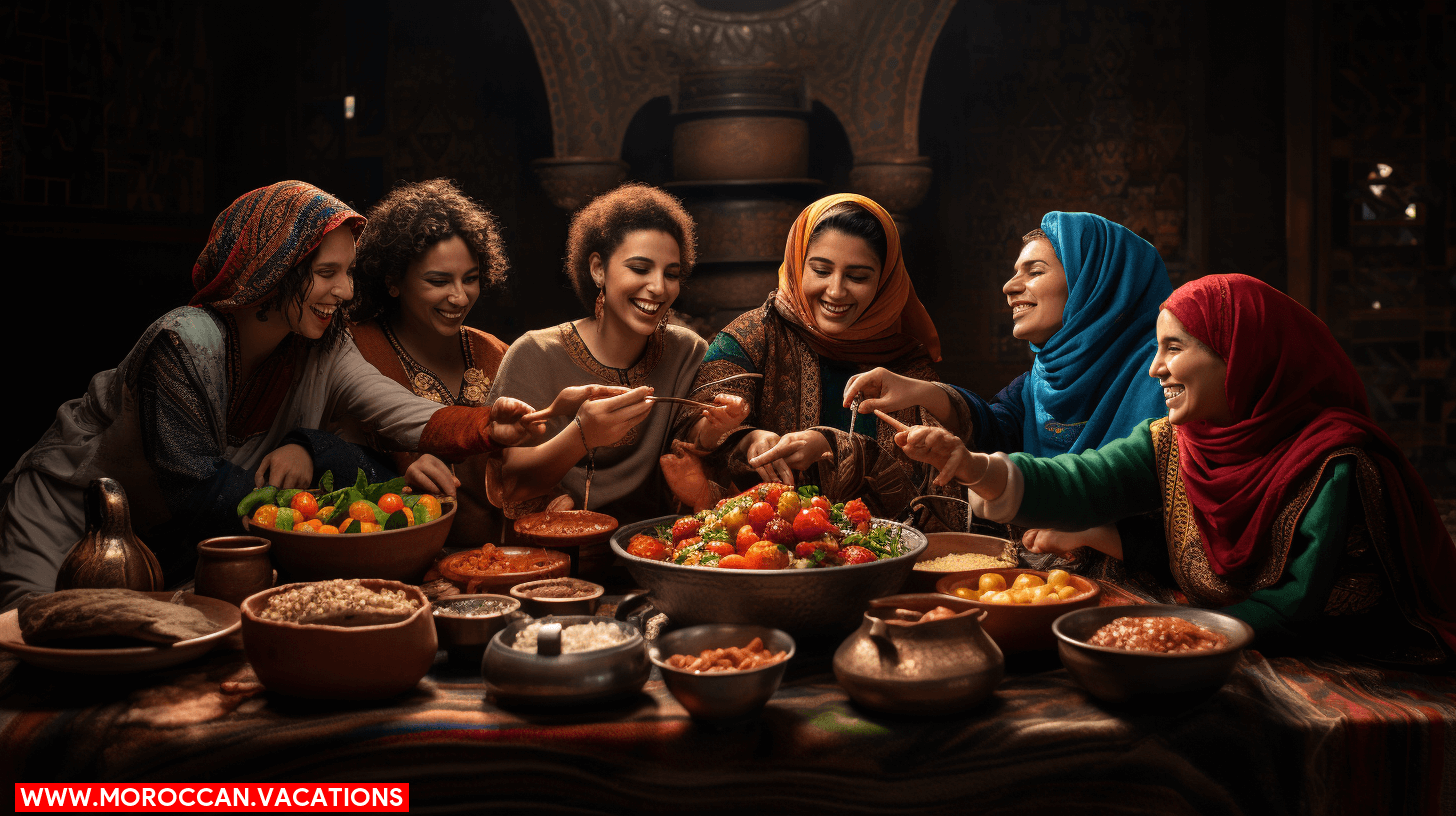

When it comes to the social fabric of Moroccan society, sharing meals holds a significant role. It is not just about satisfying hunger, but rather, it is a way to strengthen family bonds and exhibit their hospitality customs. Here are four reasons why sharing meals is socially important in Moroccan society:
- Fosters Strong Family Bonds: In Moroccan culture, the act of sharing meals brings family members together, allowing them to spend quality time with one another. It provides an opportunity for family members to catch up, share stories, and connect on a deeper level. This strengthens the sense of belonging and unity within the family unit.
- Symbolizes Warm Hospitality: Moroccans take pride in their hospitality customs, and sharing meals is an important aspect of this. Inviting others to share a meal is a way to show respect and friendship. It is seen as a generous gesture, and guests are welcomed with open arms and treated with utmost care and respect.
- Promotes Social Interaction: Sharing meals in Moroccan society encourages social interaction beyond the immediate family. It is common for extended family members, friends, and even neighbors to gather for meals. This promotes a sense of community and allows for the exchange of ideas, experiences, and cultural traditions.
- Preserves Cultural Identity: Traditional Moroccan dishes and recipes are passed down through generations. By sharing meals, these culinary traditions are preserved and celebrated. It is a way to honor Moroccan heritage and keep cultural practices alive.
Symbolism and Significance of Ingredients in Moroccan Cooking
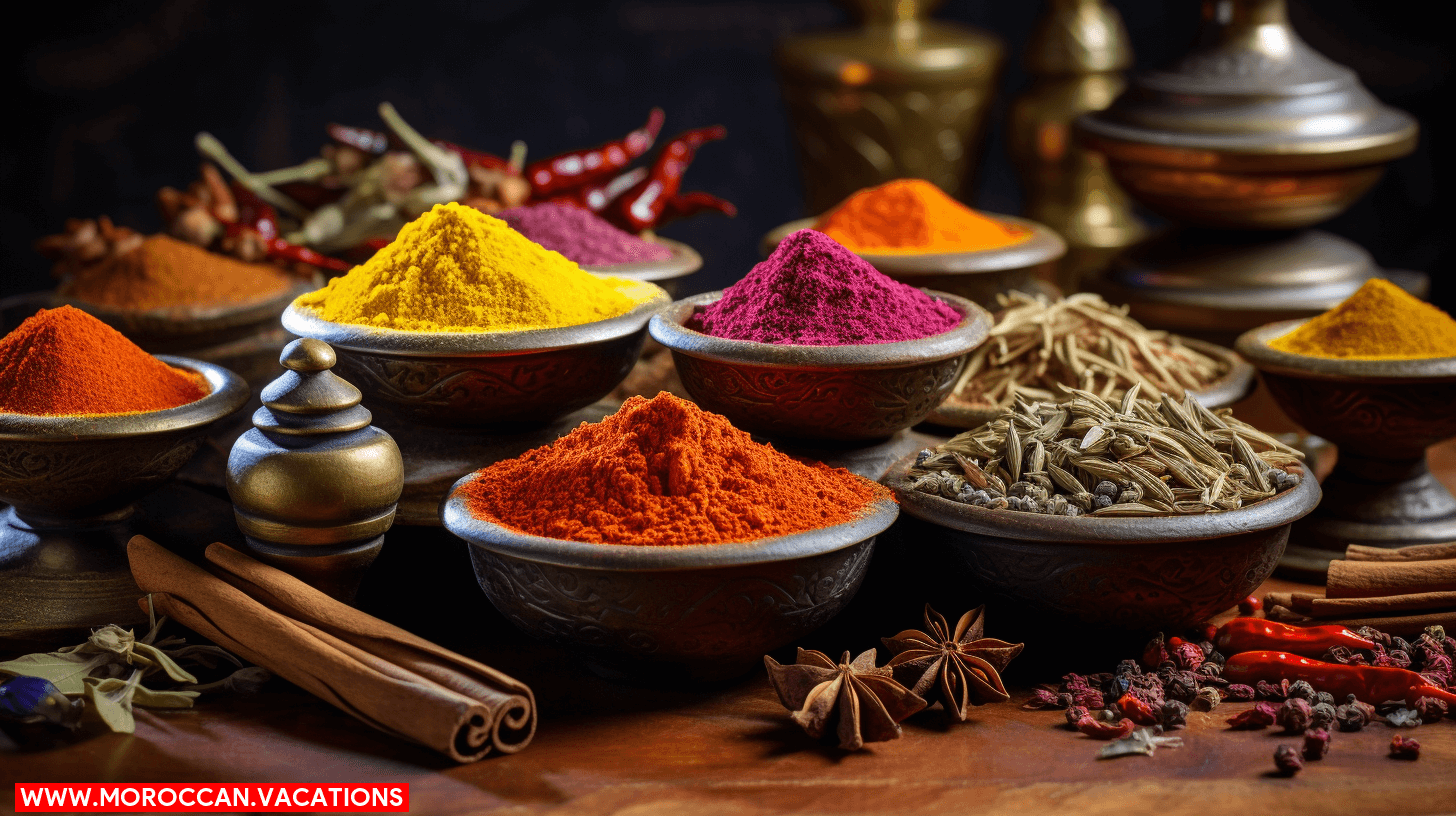

To truly understand the cultural significance of Moroccan cooking, you must explore the symbolic and meaningful role that ingredients play in traditional dishes. Moroccan cuisine is deeply rooted in centuries-old culinary traditions and is characterized by a rich blend of flavors and aromas. The ingredients used in Moroccan cooking are carefully chosen and hold great importance, not only for their taste but also for their symbolic value.
One of the key ingredients in Moroccan cuisine is the use of spices. Spices like cumin, turmeric, cinnamon, and paprika are not only used to enhance the flavor of dishes but also carry cultural significance. For example, cinnamon is often associated with sweetness and is used in desserts and sweet tagines. On the other hand, cumin is believed to aid digestion and is used in savory dishes like tagines and couscous.
Another important ingredient in Moroccan cooking is the use of regional variations. Morocco is a diverse country with different regions having their own unique culinary traditions. For example, in the coastal regions, seafood is a prominent ingredient in dishes, while in the Atlas Mountains, preserved lemons and olives are commonly used. These regional variations reflect the cultural diversity of Morocco and highlight the importance of local produce and ingredients in traditional cooking.
Moroccan Food as a Reflection of Community and Identity
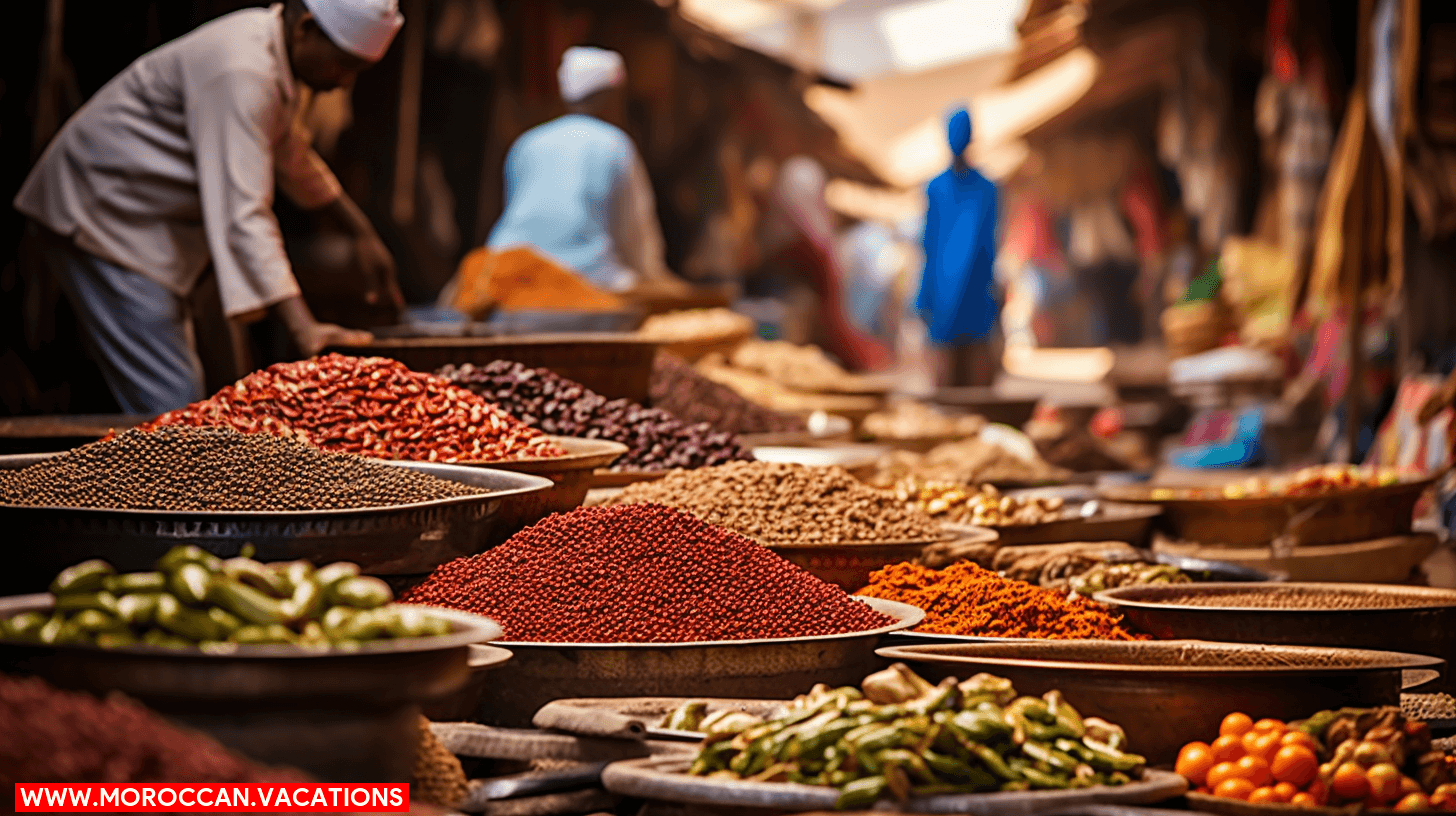

As you explore the cultural significance of food in Moroccan society, it becomes evident that Moroccan cuisine serves as a reflection of community and identity through its use of traditional recipes and cooking techniques. Moroccan food is not just about nourishment, but also about celebration and expression. Here are four ways in which Moroccan food embodies the spirit of community and identity:
- Moroccan food as a celebration: In Morocco, food is an integral part of celebrations and special occasions. Whether it’s a wedding, a religious festival, or a family gathering, traditional Moroccan dishes are prepared with love and care. These meals not only bring people together, but they also symbolize unity and joy.
- Moroccan food as a form of expression: Moroccan cuisine is a way for individuals to express themselves and showcase their cultural heritage. Each region in Morocco has its own unique flavors and culinary traditions, which are passed down from generation to generation. By preparing and sharing traditional dishes, Moroccans are able to preserve their cultural identity and connect with their roots.
- Traditional recipes: Moroccan food is deeply rooted in tradition, with recipes that have been perfected over centuries. From the aromatic tagines to the flavorful couscous, these dishes showcase the rich history and diverse influences of Moroccan culture. By using traditional recipes, Moroccans honor their ancestors and keep their culinary heritage alive.
- Cooking techniques: The cooking techniques used in Moroccan cuisine are also a reflection of community and identity. From slow-cooked tagines to the intricate art of preserving lemons, these techniques require patience, skill, and a deep understanding of the ingredients. By mastering these techniques, Moroccans not only create delicious meals but also demonstrate their dedication to their culinary traditions.


Samira Amrani
The passionate author behind Moroccan Vacations, sharing her expertise and love for Moroccan culture, cuisine, and travel experiences to inspire wanderlust in every reader.
Related Articles
Experiencing the Vibrant Food Culture of Marrakesh Through Cooking Classes
The History and Influence of Moroccan Cuisine Experience the vibrant food culture of Marrakesh through cooking classes and unlock the secrets of Moroccan cuisine. Did you know that Marrakesh is home to over 12,000 food stalls and restaurants? Immerse yourself in the...
The History and Influences of Moroccan Cuisine in Marrakesh
Origins of Moroccan Cuisine Step into the vibrant streets of Marrakesh and prepare to embark on a culinary journey unlike any other. From the aromatic spices that tickle your senses to the rich flavors that dance on your palate, Moroccan cuisine is a true feast for...
From Spices to Tagines: Learning Moroccan Cuisine in Marrakesh
The Vibrant Food Markets of Marrakesh Get ready to embark on a culinary adventure like no other in Marrakesh, where you can immerse yourself in the vibrant food markets and learn the secrets of Moroccan cuisine. From the intoxicating aromas of spices to the art of...

